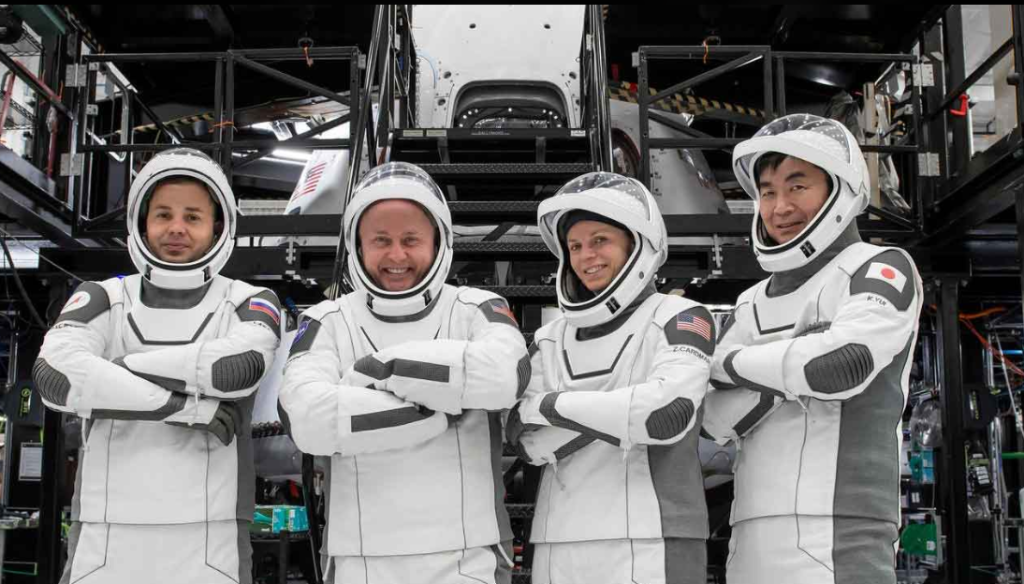
In a groundbreaking mission, SpaceX successfully transported four international astronauts to the International Space Station (ISS) in just 15 hours — the fastest Crew Dragon flight to date. The Crew-11 mission launched from NASA’s Kennedy Space Center in Florida and docked with the ISS at 2:27 a.m. EDT on Saturday while orbiting 264 miles above the South Pacific Ocean.
The crew consists of NASA astronauts Zena Cardman and Mike Fincke, Japanese astronaut Kimiya Yui from JAXA, and Russian cosmonaut Oleg Platonov from Roscosmos. The team will remain aboard the ISS for at least six months, contributing to scientific research focused on future deep space missions. Their arrival temporarily raises the number of residents on the ISS to 11.
The composition of this crew reflects a series of reassignments caused by delays in Boeing’s Starliner program. Cardman, originally scheduled for the earlier Crew-9 mission, was reassigned to accommodate a prolonged Starliner test mission involving astronauts Butch Wilmore and Suni Williams. Meanwhile, Fincke and Yui transitioned from the planned Boeing Starliner-1 mission after ongoing thruster issues pushed Starliner’s first operational flight to at least 2026. Oleg Platonov, on his first mission to space, was previously removed from a Soyuz launch due to a health concern.
Despite tensions on Earth, the mission underscores the continued collaboration between NASA, Roscosmos, and JAXA. It also marks the first in-person meeting in over seven years between Russian space chief Dmitry Bakanov and NASA acting administrator Sean Duffy. The leaders discussed further cooperation on the ISS, joint lunar programs, and deep space exploration projects.
During their time aboard the ISS, the Crew-11 astronauts will conduct a variety of scientific experiments. These include simulating lunar landings, studying the effects of microgravity on stem cell development, and testing how space conditions influence bacteria-killing viruses and plant cell division.
Pilot Mike Fincke’s enthusiastic “Hello, space station!” greeted the ISS upon docking. For Commander Cardman, making her debut spaceflight, the approach to the ISS was an awe-inspiring moment: “such an unbelievably beautiful sight,” she said.
While SpaceX’s achievement sets a new speed benchmark for American missions, Russia’s Soyuz spacecraft still holds the global record, reaching the ISS in just three hours.



